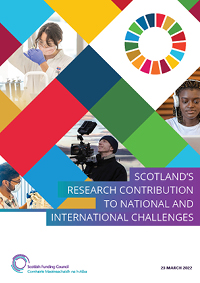SFC news published since 2018. See SFC archived content for earlier news articles.

The University of Aberdeen’s Centre of Excellence in Soil Science is a multidisciplinary research facility. It was recently awarded the Queen’s Anniversary Prize in recognition of the excellence, innovation and public benefit of its work.
The Centre’s researchers contribute to several international partnerships working to understand soil nitrogen balance and to shape global policy and practice. In Sub-Saharan Africa the AFRICAP programme is helping to make the agriculture and food infrastructure more productive, sustainable and resilient to climate change.
In South East Asia a pioneering drought and disease resistant rice crop developed through the Centre’s research is currently being scaled up. Earlier work at the University of Aberdeen identified the link between irrigation of rice and arsenic in the human diet, and subsequent international collaboration has helped to mitigate arsenic contamination of a rice-based diet.
Further research towards zero hunger is focussed on the balance between the climate impacts of food production and meeting global nutritional needs. Researchers have worked with the World Wildlife Fund UK to create a new modelling tool to derive diets that are both nutritionally adequate and climate-friendly.
Crop research at the University of Aberdeen’s Rowett Institute has identified moringa as a high protein and micronutrient enriched crop that can withstand drought. The Institute is now working with Africa Growing Plc and the National Farmers’ Association to combat malnutrition and stunting in Malawi. Researchers at the University of Aberdeen are also leading innovations to support responsible and sustainable practice in aquaculture across the world. This includes the development of an app for fishing vessels to share information about the location of unwanted species.

